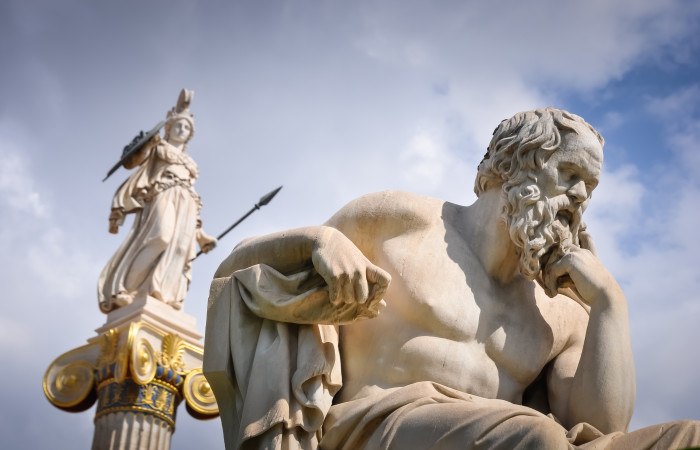More Holistic Health Articles
A History of Holistic Health
Learn how holistic health’s history shaped the practice it is today.

Holistic health practitioners have many ways of healing, but they share a common basic approach. They believe in the ancient idea that healing is most effective when you consider the whole person, rather than focusing on specific illnesses, body parts or symptoms.
As Socrates said in the 4th century B.C., “the part can never be well unless the whole is well.”
Holistic health is a state of balance, not simply an absence of illness. A holistic health education teaches the interconnection of mind, body, spirit and environment—just as it has for thousands of years.
Ancient Roots of Holistic Health
Long before penicillin or X-rays, healers recognized the importance of emotional and spiritual well being in achieving physical health. Two of the most well documented ancient holistic health traditions are Traditional Chinese Medicine (TCM) and Ayurveda.
TCM originated almost 5,000 years ago and has continued to evolve into a complex system of diagnostic and treatment methods that are still practiced today.
From the very beginning, TCM viewed the human body as a small universe of interconnected systems, including physical elements as well as subtle energies, such as “qi,” or life force, and “shen,” or spirit.
There are three ancient medical traditions in holistic health:
- Ayurveda – Ayurveda is the ancient medical tradition of India. Ayurveda traces its origins to a text written by Sushruta, the “father of Surgery,” in the 6th century B.C. The healing practice incorporates beliefs in the five great elements of the universe, the seven primary constituent elements of the body, and the three “doshas,” or biological energies, that each represent. Using a system of eight treatment disciplines, Ayurvedic holistic health practitioners guide their patients to balance and moderation.
- Herbal medicine – Herbal medicine emphasizes holistic balance and is the oldest form of health care known to mankind. Indigenous people all over the world and throughout history have drawn on the medicinal properties of plants. Herbalism is a critical element of TCM and Ayurveda.
- Western herbalism – Western herbalism originated in ancient Greece and Rome, then spread throughout the rest of Europe and eventually to North and South America, focusing on the medicinal attributes of plants and herbs.
Holistic Health and Modern Medicine
Hippocrates, the father of medicine, who lived in the 4th century B.C., stressed the healing power of nature. He believed in encouraging the self-healing efforts of the body. Other early physicians were more interested in actively stepping in to correct illness. These two approaches—support versus intervention—were debated for centuries until the scientific revolution of the 19th century.
Support vs. Intervention
With the discovery of germs as a disease-causing agent, Western medicine became thoroughly focused on intervention. Diseases were treated as invaders to be destroyed with medicines such as penicillin.
Physicians paid less attention to healthy lifestyle choices, environmental factors, and emotional health. The emphasis was on symptoms and syndromes. Patients were discouraged from participating in their own health care and began to believe that medicine should simply “fix” them.
Renewal of Interest in Holistic Health
It took almost a century for the limitations of this approach to become clear. Some scientific medical cures proved more harmful than the diseases they sought to treat. Other diseases and chronic conditions failed to respond to scientific treatment.
Eventually people began to seek alternative forms of medicine. This led to a renewal of interest in holistic health education in the West.
The first National Conference on Holistic Health was conducted in California in 1975. The American Holistic Health Association (AHHA) and the Holistic Medical Association were formed soon after.
Holistic Health Today
We live in a time of great imbalance. There are more pollutants and chemicals in our food and environment than ever before. We face epidemic rates of obesity and chronic disease. Most people have poor diet and exercise habits. Almost everyone in our fast-paced society struggles to manage daily stress, and many are afflicted with chronic depression and anxiety.
Because of all this, consumers are concerned for their health. There has never been a greater need for the holistic health approach, and people are demanding medical alternatives and actively seeking better options for their personal wellness. This has resulted in constant research and development in the wellness industry.
Even so, very few medical doctors practice holistic health care, so professionals trained in holistic health schools are in high demand.
These holistic health practitioners offer healing alternatives such as massage therapy, nutrition, chiropractic medicine, acupuncture, meditation, and homeopathic medicine. While no holistic health practitioner or wellness professional can be an expert in every form of health restoration, each offers a unique toolbox of skills and knowledge to help patients achieve whole body health and balance.
Source: Share International, American Holistic Health Association
